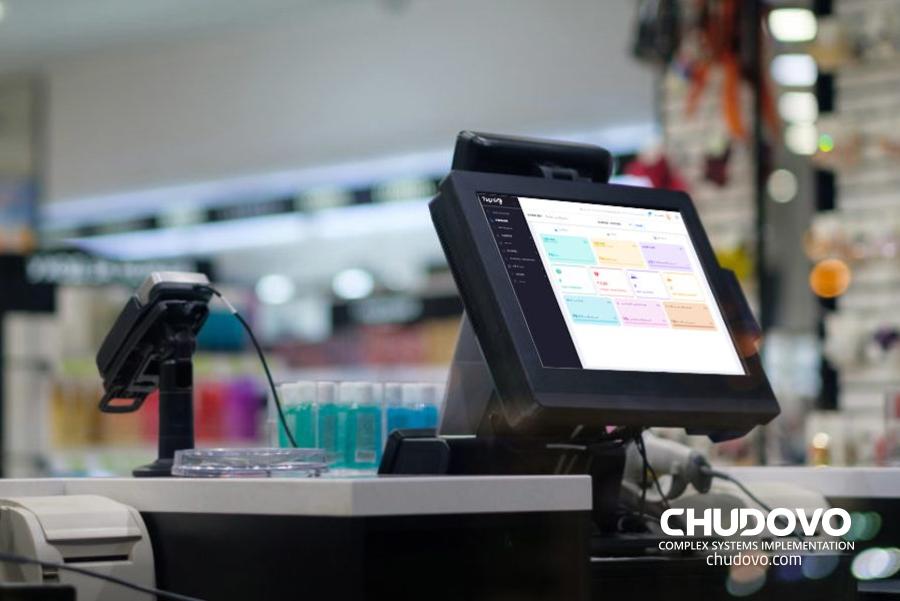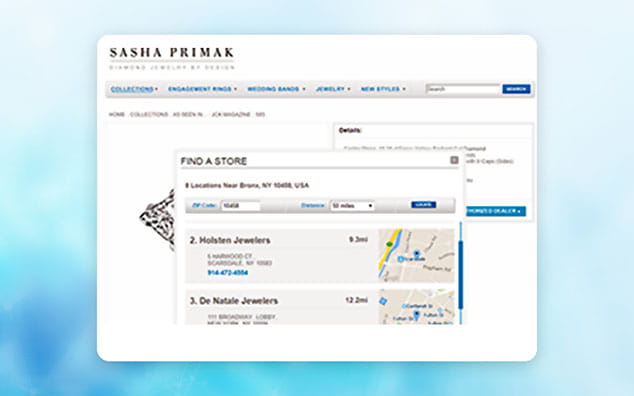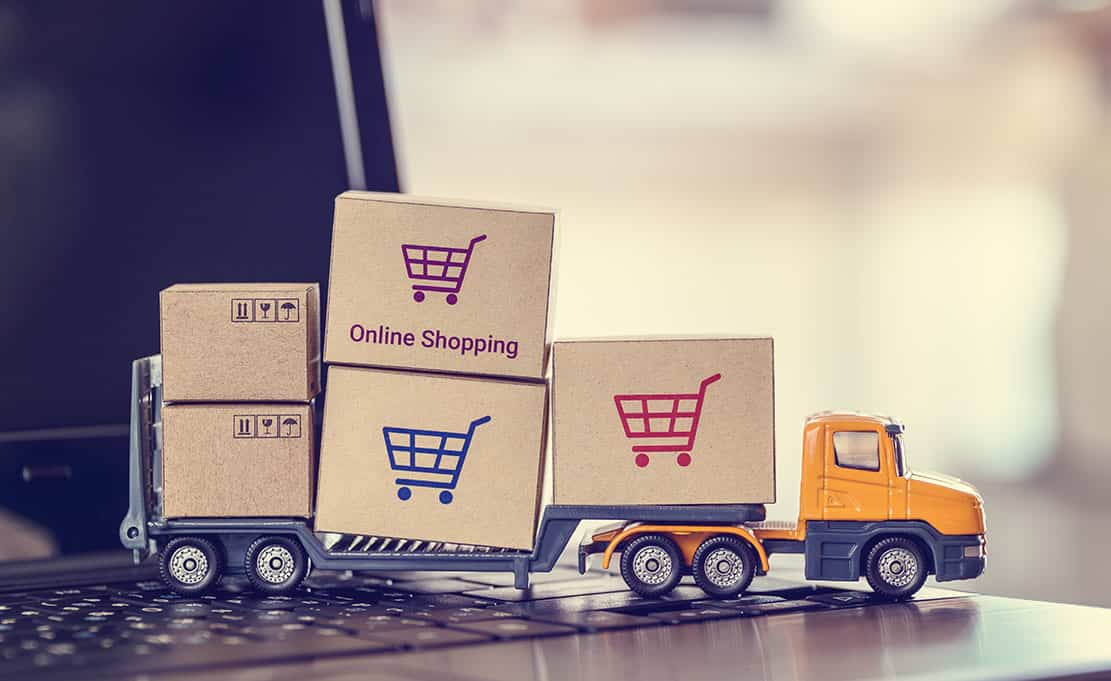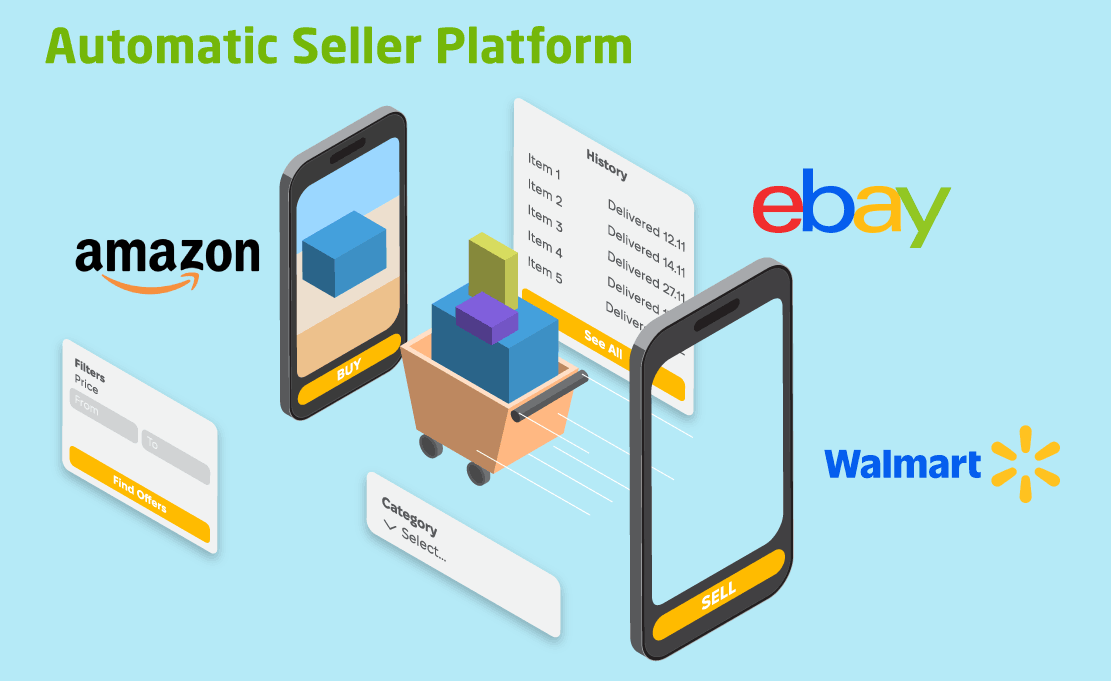Understanding Retail ERP Software
Running and managing a retail business can feel like solving a very complex puzzle and rightfully so. Proper management of retail businesses involves effectively managing everyday retail operations including finance, point-of-sale integrations, inventory management, customer relationships, order management, reporting, and supply chain management.
Managing all these different yet crucial aspects of retail businesses can get overwhelming particularly when you are relying on multiple tools each handling a core business process. However, this does not have to be the case. There is a superior approach for retailers to streamline and consolidate their core business processes in one unified platform by using retail ERP Software.
Table of Content:
- What is ERP Software?
- What is Retail ERP Software?
- Key Features of Retail ERP Software
- Benefits of Retail ERP Software to Retailers
- Considerations When Implementing an ERP Solution
- How to Build Own Retail ERP Solution
What is ERP Software?
Enterprise Resource Planning (ERP) is a software system and business management solution that helps businesses of all sizes to integrate and automate core business processes and functions across various departments for enhanced performance. ERP software integrates all the core processes in running a company including finance, procurement, project management, supply chain, human resources, and risk management and compliance.
Typically, companies have different software for each of their core processes. ERP software unifies all these different software into a single unified platform that can handle all the core business processes and facilitates a seamless flow of data and information across different departments. This allows for ERPs to act as a singular source of reliable information on company operations thus supporting decision-making. It also helps in maintaining data integrity and avoiding data duplication. Additionally, by providing a unified platform from where businesses can manage all their core operations, ERPs allow businesses to streamline and optimize their operations across all company departments.

What is Retail ERP Software?
Retail Enterprise Resource Planning software is specialized enterprise resource planning software designed to integrate, connect, and automate front-end and back-office business processes in B2B and B2C retail operations. It integrates and automates core business processes across various departments and functions within a retail organization, providing a centralized platform for managing key operations.
Retail ERP software allows retailers to efficiently manage multiple sales channels, complex supply chains, customer relationships, and financial operations improving efficiency, customer experiences, and decision-making, and helping retailers save on operational costs.
Key Features of Retail ERP Software
Some of the key components of Retail ERP Software include:
Inventory Management
This module allows retailers to track and manage their inventory levels including stock counts, replenishment, and movement across multiple locations. It provides a real-time view of inventory levels, and order delivery statuses, and allows for accurate replenishment planning.
Point of Sale (POS) Integration
Retail ERP software comes integrated with point-of-sale systems for use in retail outlets. ERP POS integration is useful for processing sales transactions, managing customer orders, and tracking sales data in real-time. This means that transactions collected from retail outlets are reflected in the ERP immediately and there’s no need for another process of feeding sales information to the ERP.
Order Management
An order management module allows retail ERPs to handle ordering processing including order capture, inventory allocation, order fulfillment, and shipping and delivery tracking. For shipping and delivery tracking, retail ERP allows for integration with shipping carriers and logistics providers. The order management module in retail ERPs also handles returns, exchanges, and refunds and provides analytics and reporting tools to analyze order data.
Customer Relationship Management (CRM)
The customer management module within a retail ERP system serves as a comprehensive platform for retailers to effectively manage and nurture customer relationships throughout the entire customer lifecycle. This module enables retailers to capture, organize, and maintain detailed customer information, including contact details, purchase history, preferences, and interactions. By centralizing customer data, the ERP system provides retailers with a holistic view of their customers, allowing them to personalize marketing efforts, tailor product recommendations, and enhance customer engagement.
Supply Chain Management (SCM)
This module helps retailers manage and coordinate supply chain activities, including procurement, inventory management, vendor management, demand forecasting, order fulfillment, and logistics. Retailers can streamline procurement processes by automating supplier selection, purchase order generation, and supplier communication, ensuring timely delivery of goods while minimizing costs. Retailers can also optimize stock levels, track inventory movements, and prevent stockouts or overstock situations.
Financial Management
The financial management module in retail ERP systems includes functions such as accounts payable, accounts receivable, general ledger, budgeting, and financial reporting. With this module, retailers can streamline processes like invoice processing, payment approvals, and vendor payments. It also allows retailers to track customer invoices and collections, maintain accurate financial records, and ensure regulatory compliance. Retailers can also generate reports for insights into the financial health and performance of their companies.
Reporting and Analytics
Reporting and analytics components provide retailers with valuable insights into business performance and trends. Good retail ERP systems come with robust reporting capabilities allowing retailers to generate customizable reports and dashboards to track key metrics such as sales, inventory turnover, and customer behavior. Additionally, they provide advanced analytics tools for retailers to analyze data, identify patterns, and forecast future trends. This is crucial in making data-driven decisions and formulating business strategies.
Multichannel Retailing
Multichannel retailing allows retailers to reach customers across various sales channels. Retail ERP systems support multichannel retailing by integrating online sales channels, brick-and-mortar stores, mobile apps, and other sales channels into a unified platform. This integration enables retailers to provide a consistent shopping experience across all channels, allowing customers to browse, purchase, and interact with the brand effortlessly, regardless of the channel they choose.
E-commerce Integration
Retail ERP systems integrate with e-commerce platforms, enabling retailers to manage product listings, track inventory availability, and process online orders efficiently. This integration streamlines operations, reduces manual errors, and ensures accurate and up-to-date information across all sales channels.
Compliance and Security
Retail ERP systems implement robust security measures, including data encryption, access controls, and audit trails, to protect against unauthorized access and data breaches. Also, they facilitate compliance with regulations such as PCI DSS, GDPR, and tax regulations by providing features like data masking, consent management, and regulatory reporting.
Benefits of Retail ERP Software to Retailers
Some of the key benefits of Retail ERP software to retailers include:
Centralized Data Management
A key functionality of retail ERP is centralizing data and functionality from different data sources and departments in retail environments. This approach improves data accuracy, and data integrity and reduces redundancy. Centralized data management provides retailers with a single source of truth which facilitates better decision-making.
Improved Operational Efficiency
Retail ERP allows for the automation of routine tasks and workflows. This comes in handy in streamlining operations and minimizing errors arising from manual work. By automating processes such as order management, inventory control, and financial management, retailers can have increased efficiency and productivity.
Enhanced Customer Experience
Since retail ERPs come with a customer experience management module, it empowers retailers to deliver personalized and enhanced shopping experiences across all channels. Retailers also get insights into customer behavior allowing them to tailor their marketing efforts, improve customer service, and build better customer relationships.
Better Inventory Management
With robust inventory management features, retail ERP software helps retailers optimize inventory levels, reduce stockouts and overstock situations, and improve inventory turnover. Real-time visibility into inventory levels and demand forecasting capabilities enable retailers to make informed decisions and ensure product availability to meet customer demand.
Increased Sales and Revenue
Retail ERP software provides retailers with insights into sales performance, customer trends, and market opportunities, enabling them to predict market demand, identify growth opportunities, and optimize sales strategies. By analyzing data and implementing targeted marketing campaigns, retailers can drive their sales and increase revenue.
Cost Savings
Importantly, Retail ERP software can help retailers reduce costs by improving operational efficiency, minimizing inventory carrying costs, and eliminating unnecessary expenses. Additionally, since retail ERPs automate processes, reduce errors, and optimize resource utilization, retailers can achieve cost savings and improve their profit margins.

Certified engineers
Convenient rates
Fast start
Profitable conditions
Agreement with
EU company
English and German
speaking engineers
Considerations When Implementing an ERP Solution
As a retailer, there’s a lot that you and your business stand to benefit from by implementing an ERP solution to streamline your services. However, that is easier said than done. Implementing an ERP solution is just like any other IT investment, it needs to be well thought out and the investment needs to be justified. Importantly, the retail ERP solution needs to meet the unique needs of your retail business.
To help you in selecting the right ERP solution for your business, here are some considerations to keep in mind
Business Requirements
Your ERP solution of choice must meet the business needs and requirements of your business. Therefore, it is important to start by evaluating the needs of your retail business. Consider factors such as the size of your business, projected growth, the complexity of the business, industry-specific features you’d require in retail ERP software, and the scalability of the ERP solution. The ERP solution you go for should have all the modules needed in your business.
Integration Capabilities
It is unlikely that a retail ERP solution is the first software solution you purchase or develop for your business. Therefore, ensure the retail ERP solution you invest in can be integrated with existing systems and third-party applications such as POS systems, accounting software, and e-commerce platforms used in your business. Retail ERP software should accommodate integration with commonly used retail software. This is important for data synchronization and workflow automation across different systems.
User-Friendliness
The usability and user-friendliness of the ERP software are critical factors for successful adoption and user satisfaction. It is important to prioritize retail ERP solutions with intuitive interfaces, customizable dashboards, and comprehensive training and support resources to ensure that users can easily navigate the system and perform their tasks efficiently. Since all your retail business operations will be managed from one central location, it is important for the ERP solution that facilitates this to be easy to use.
Scalability and Flexibility
As a retailer, it is expected that over time your business will grow. Therefore, it is important to choose retail ERP software that is flexible and easy to scale to accommodate changing business needs and growth. The ERP solution should scale up or down depending on need and also adapt to the changing business environment.
Customization Options
As a retailer, you may have unique business processes and requirements that require customization of the ERP software. To achieve this, assess the customization options available in the ERP system that you choose and consider whether it can be tailored to meet your specific needs without compromising system stability or future upgrades. Read our extended article about the ERP customization guide.
Data Security and Compliance
Data security and compliance are paramount considerations for retailers when selecting ERP software. Retailers should ensure that the ERP system complies with industry regulations and standards, such as PCI DSS, GDPR, and HIPAA, and provides robust security features, such as data encryption, access controls, and audit trails, to protect sensitive information.
Implementation Timeline and Budget
A key determinant of the ERP solution you go for will be your budget. You don’t want to spend too much on an ERP solution that your core business operation suffers. Consider retail ERP solutions that are within your budget and can be implemented on time. Cloud-based solutions for instance are affordable and have much shorter implementation timelines. Here is our other article about the top AWS services for the retail industry.

What if I Want to Build My Own Retail ERP Solution?
Whereas there are already developed retail ERP solutions in the market, in certain instances, it might make sense to develop your own custom retail ERP solution. For instance, if your business has unique processes that cannot be easily accommodated by off-the-shelf ERP solutions or would like to have a competitive advantage over your competitors, a custom solution might be a good choice.
Additionally, if you anticipate significant growth, require integration with internal systems, want full control over data security and compliance measures, or want to save on costs in the long term, a custom-made retail ERP solution is the way to go.
How To Get Started
Retail ERP software is a complex and critical system that requires specialized expertise to develop and maintain. Luckily, retailers do not need to worry about doing this themselves as Chudovo can help with all their retail software development needs.
Chudovo is a software development company with over a decade of experience delivering quality custom retail solutions such as custom retail ERP Systems for retailers at affordable rates. Our team of retail software development engineers and experts are available and ready to help you navigate your retail software development needs.
Our experts can help you determine whether a custom solution is right for your business, assess your business needs and requirements, and take care of all the development of your custom retail ERP solution allowing you to focus on your key business objectives.
To get started, get in touch with us to schedule an appointment to discuss your business and software development needs.




